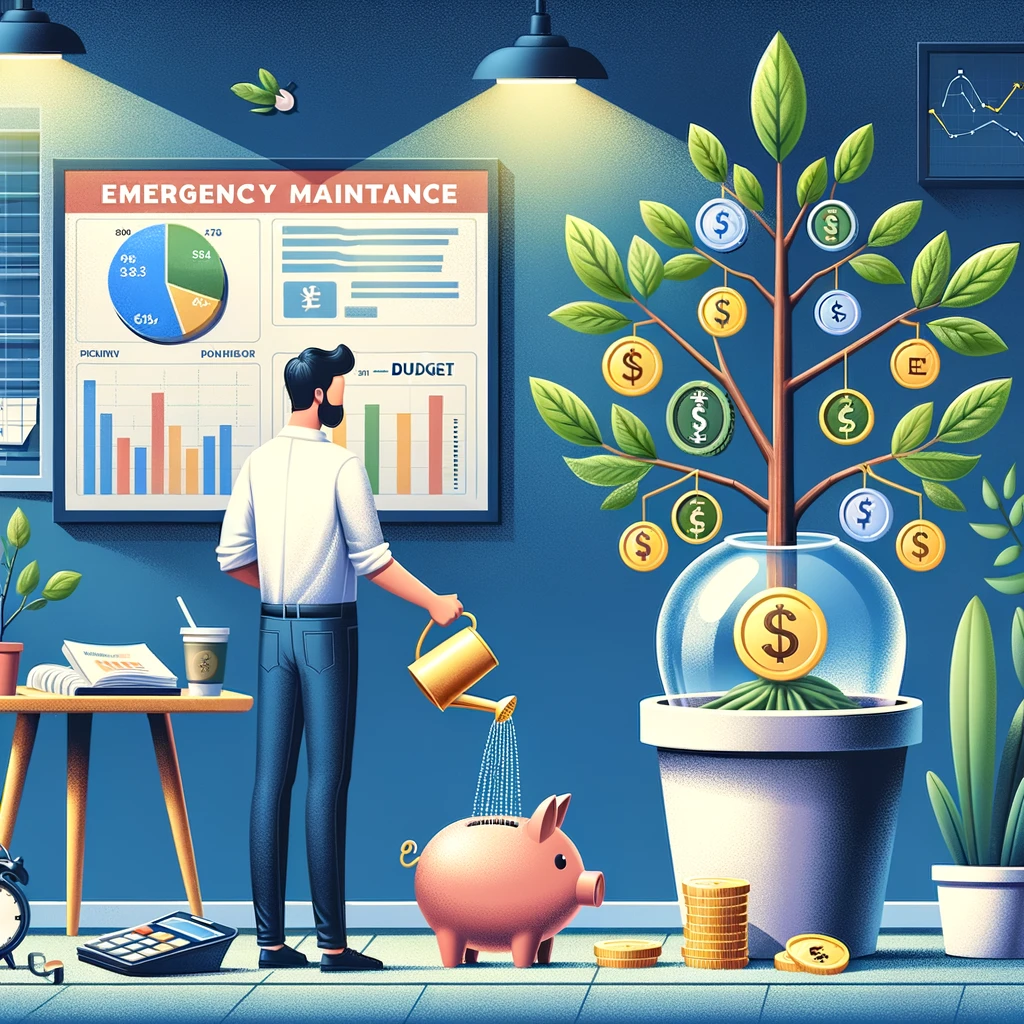7 Emergency Fund Tips Van Life!
While van life offers an unparalleled sense of freedom and adventure, it also presents its unique challenges and uncertainties. From mechanical breakdowns to unexpected medical emergencies, being prepared for the unexpected is crucial.
Having an emergency fund isn’t just advisable; it’s non-negotiable. It serves as your financial buffer, enabling you to tackle sudden financial hurdles without compromising your journey or incurring debt.
In this article, we’ll delve deeper into what constitutes an emergency fund, the types of emergencies specific to van life, how to determine the ideal size of your fund, and tips for building and maintaining it. The aim is to offer a detailed, actionable roadmap for financial preparedness on the road.
The Anatomy of an Emergency Fund
What Exactly is an Emergency Fund?
An emergency fund is a dedicated pool of money set aside specifically to cover unexpected, urgent expenses. It should be separate from your daily checking and general savings accounts to prevent accidental or impulsive usage.

Types of Van Life Financial Emergencies
Van lifers may encounter a unique set of emergencies. These can include urgent vehicle repairs, sudden campground fees, abrupt changes due to weather conditions, or even unexpected veterinary bills for those traveling with pets. Being aware of these unique challenges helps tailor your emergency fund appropriately.
More Than Just Money: The Psychological Buffer
The emergency fund is as much about psychological comfort as it is about financial security. It’s your ticket to a stress-free van life, knowing you have a fallback plan should things go awry.
How Much Should You Save?
The size of your emergency fund will depend on various factors, such as the make and age of your van, the comprehensiveness of your insurance coverage, your health condition, and the countries or states you plan to visit (as costs can vary).
List out all possible monthly expenses, including insurance, food, utilities, and add a margin for contingencies. Make sure to consider all the true costs of living in your car or van.
Multiplying this sum by three to six gives you a reasonable emergency fund target. If you’re just beginning your van life adventure, aim to start with at least $500 to $1,000 as an immediate cushion.
Building Your Emergency Fund
It might seem overwhelming at first, but remember that even small, consistent contributions can add up over time. Make it a line item in your budget, just like food or gas.
Where to Park Your Fund: Choosing the Right Account
High-yield savings accounts or money market accounts are excellent places for your emergency fund. They offer slightly better interest rates than regular savings accounts and are easily accessible in case of an emergency.
Side Hustles and Windfalls
Freelance work, part-time remote jobs, or even seasonal gigs can be a boon in boosting your emergency fund. Likewise, unexpected windfalls like tax refunds or gifts should be channeled directly into this fund. You can checkout our guide on 8 ways to make additional income living in your car or van.
Emergency Fund Maintenance
As your lifestyle changes, so will your financial needs. Make it a point to review your fund size every six months or whenever there’s a significant lifestyle change.
If you dip into your emergency fund, make replenishing it a top priority once your situation stabilizes. That ensures you’re prepared for the next curveball life may throw at you.

Additional Tips for Growing Your Emergency Fund
Automate Your Savings
One of the most effective ways to consistently build your emergency fund is to automate your savings. Schedule automatic transfers from your checking account to your emergency fund right after you get paid.
This ‘pay yourself first’ strategy ensures that you don’t accidentally spend what you intended to save.
Diversify Your Fund
While liquidity is important, if you have a substantial emergency fund, consider diversifying. Keep a portion easily accessible, but perhaps invest another part in low-risk, slightly higher yield options. Always consult with a financial advisor for tailored advice.
Financial Tools to Track Your Fund
Budgeting Apps
Utilizing a budgeting app can help you keep tabs on how close you are to reaching your emergency fund goals. Apps like Mint, YNAB, or PocketGuard offer features that allow you to categorize and track your savings easily.
Financial Planners and Consultants
For those who want professional guidance, a meeting with a financial planner can provide personalized strategies to reach your financial goals faster.
Emergency Fund Vs. Insurance
While an emergency fund serves as a catch-all for unexpected expenses, specific insurance policies can act as another safety net. Roadside assistance plans, comprehensive health insurance, and even pet insurance if you are living in a van with a dog (or cat) can minimize the impact of specific emergencies.

When to Use Which
Your emergency fund is ideal for immediate, unexpected expenses, while insurance claims may take time to process. Having both in place offers a layered approach to financial security and help avoiding having to rely on credit cards.
Using Credit For Emergencies
Credit cards or personal loans could serve as a last resort in emergencies but relying on them defeats the purpose of an emergency fund and could lead to long term debt.
The Importance of Good Credit
While the focus is on building an emergency fund, maintaining a good credit score is beneficial. It can serve you well if you need to rely on credit for an emergency and can’t access your fund immediately for some reason.
Emergency Funds for International Van Life
Currency Considerations
If your van life adventures take you across borders, your emergency fund should be capable of handling currency fluctuations. Always have a portion of your fund in globally accepted currency like the U.S. dollar or the Euro.
International Banking Fees
Be mindful of international fees when accessing your emergency fund abroad. Certain banks offer international accounts with minimal fees, which could be a good choice for longer-term.
Building and maintaining an emergency fund is vital for anyone serious about embracing van life in a financially responsible manner. This fund not only serves as your financial safety net but also contributes to your peace of mind, enabling you to fully enjoy your adventures on the road. Start building yours today, and fortify your mobile lifestyle against life’s unexpected twists and turns.
Author
-

Zaara, a kindred spirit of the open road, has nurtured a deep-seated love for RV travel since her childhood. Journeying with her parents, she learned early on to cherish the little things that make life rich and fulfilling. This emotional depth and appreciation for simplicity have become the cornerstone of her life philosophy. A firm believer in the idea that true happiness is found in nature's embrace, Zaara continues this legacy of exploration alongside her husband, Augustus. Her passion extends beyond landscapes to the joy of connecting with life's purest forms - the unconditional love of dogs and the innocence of babies. These connections reflect her nurturing soul and emotional acuity. Zaara is also a culinary enthusiast, delighting in creating meals that blend flavors from their travels, infusing each dish with memories and love. Her expertise lies in living fully, finding joy in every moment, and inspiring others to seek happiness in life's simple, natural wonders.
View all posts

